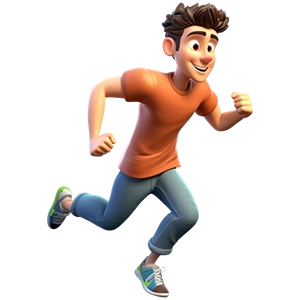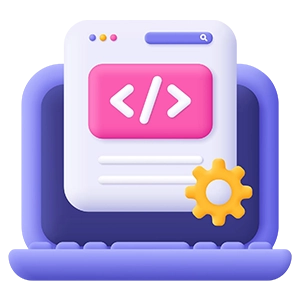No products in the cart.
Return To Shop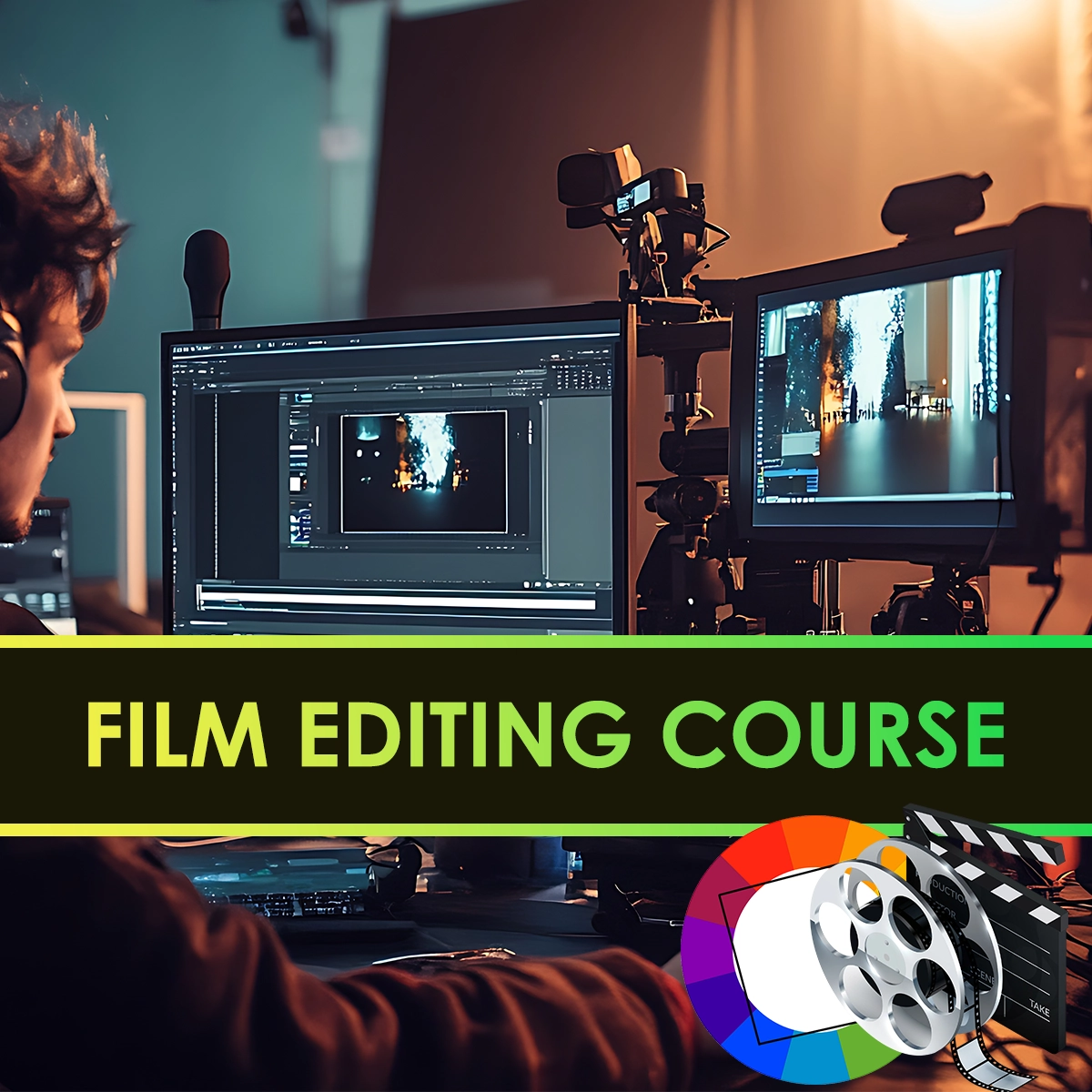
★ 4.9 Professional Rating
Admissions 2026
Best Film Editing
Course in Chennai
Premiere Pro, DaVinci Resolve, Final Cut Pro, AI Film Editing
Master Premiere Pro, DaVinci Resolve, Final Cut Pro & AI-Powered Editing at the Best Film Editing Academy in Chennai. Get Professional Film Editing Training with Real Cinema Projects, Advanced Color Grading, 100% Placement Assistance, with CBE Canada Globally Certified Accreditation.
Live Cinema ProjectsReal Film Editing
Global CertificateCBE Canada
AI PoweredFilm Editing
5000+ TrainedFilm Editors
Color GradingDaVinci Resolve
Placement Hub100% Career Support
Industry Tools Mastered
Premiere Pro
DaVinci Resolve
Final Cut Pro
After Effects
Avid Media Composer
Audition
Runway AI
CapCut Pro
12+
MonthsFull Duration
20+
ModulesAdvanced Editing
30+
CountriesGlobal Reach
4.9★
RatingStudent Success
PORTFOLIO
0K+
Real-world film editing projects completed by our cinema editing students.
PLACEMENT
0%
Job placement support in top production houses & film editing studios.
EDITING HOURS
0K
Hours of hands-on editing practice with Premiere Pro, DaVinci Resolve & Final Cut Pro.
EXPERTISE
0+
Years of excellence in professional film editing training in Chennai.
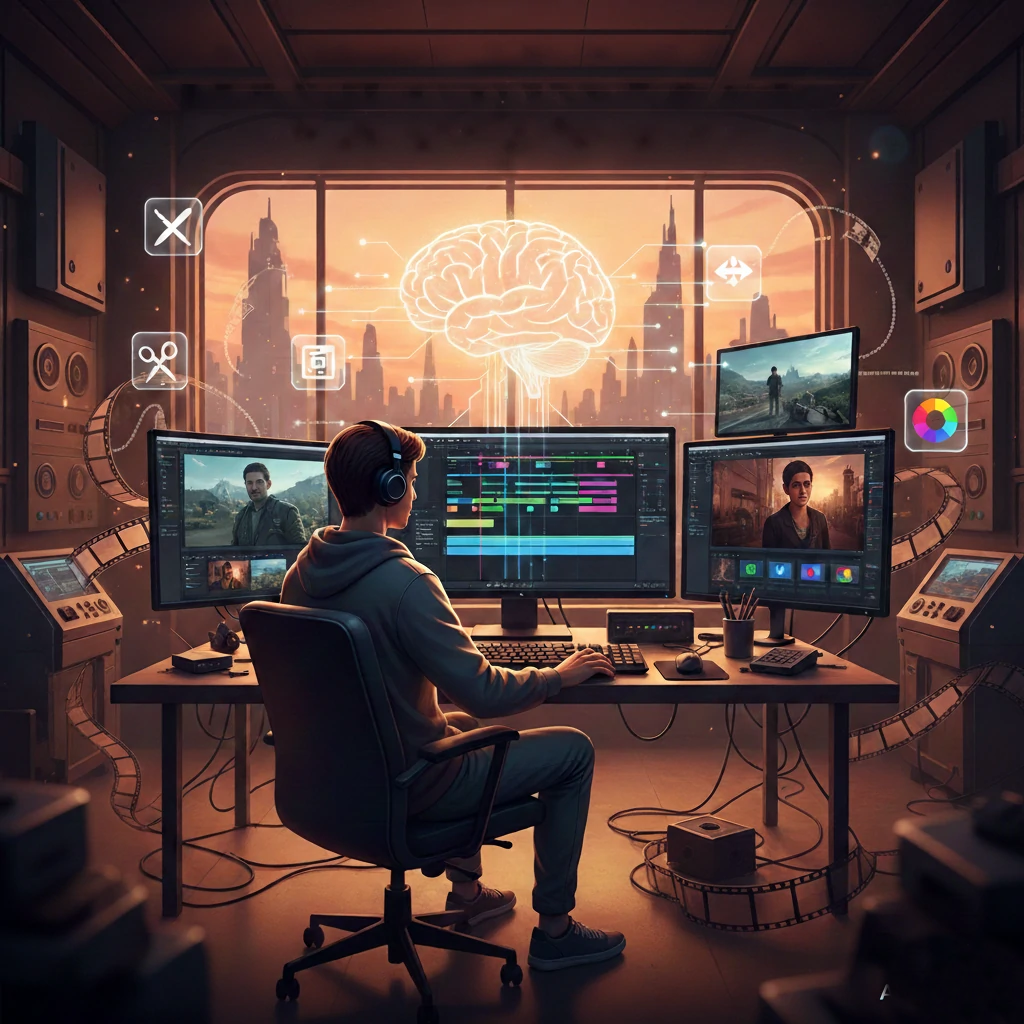
Cinema Careers Await
Film Editing — Where Storytelling Meets Technology
Cut, Grade & Master — Premiere Pro, DaVinci Resolve & Final Cut Pro
Understanding Film Editing
What is Film Editing?
Film Editing is the creative and technical process of selecting, arranging, and manipulating video footage to tell a compelling story. It involves cutting raw footage, adding transitions, color grading, sound design, and visual effects to create a polished final product. You experience film editing every day — from Bollywood blockbusters and Netflix series to YouTube content and Instagram reels — all crafted by skilled film editors. By mastering Premiere Pro, DaVinci Resolve, Final Cut Pro & AI Film Editing, you can build powerful storytelling skills and launch a high-demand career in the booming cinema and digital media industry.
ABOUT THE COURSE
Professional
Professional
Film Editing Course
Our Film Editing Course is designed to transform beginners into industry-ready film editors. You'll master the complete post-production lifecycle — from raw footage organization & assembly editing to color grading, sound design, VFX integration, and final delivery for theatrical release, OTT platforms like Netflix and Disney+ Hotstar.
You'll gain hands-on experience with Premiere Pro, DaVinci Resolve, Final Cut Pro & After Effects through 15+ real-world cinema projects — including short films, music videos, commercials, and documentary editing. Our course includes 100% placement assistance with direct hiring partner tie-ups.
Premiere Pro Editing
Timeline, Multicam & Proxy
Color Grading
DaVinci Resolve & Lumetri
Sound Design
Audition, Foley & ADR
VFX Integration
After Effects & Compositing
Cinema Film Editing
Short Films & Documentaries
AI Film Editing
Runway AI & Auto-Editing
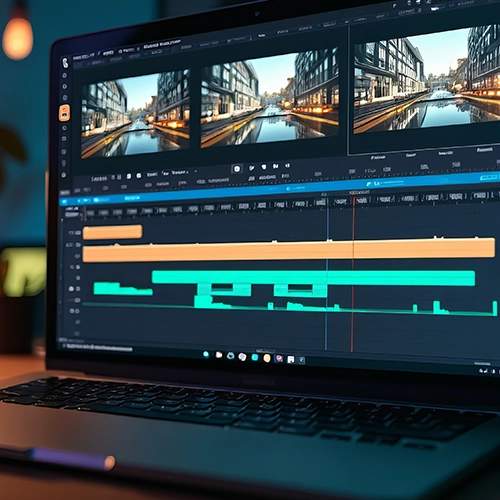
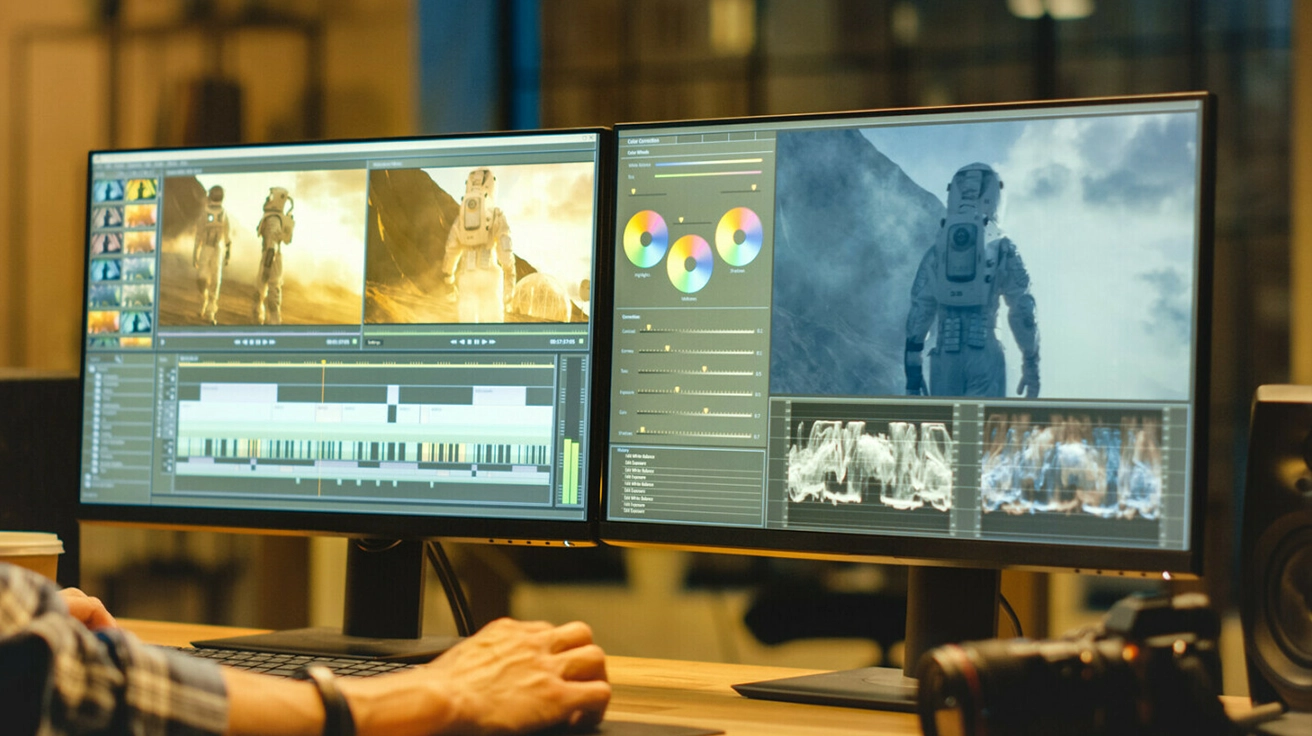
CBE Canada Globally Certified
2026 CAREER PATHWAYS
Why a Film Editing Course is a Game Changer for Your Career?
In today's content-driven economy, a single editing skill is no longer enough. This course is a "Game Changer" because it transforms you into a Full-Stack Film Editor. Instead of just learning one tool, you master the entire post-production pipeline used by global studios like Netflix, Disney, Warner Bros, and Amazon Studios.
Multi-Platform Mastery
Learn to edit for Cinema, OTT Platforms, YouTube, Social Media, and
Commercial Productions using Premiere Pro, DaVinci Resolve & Final Cut
Pro.
AI-Integrated Editing
We teach you how to integrate AI tools like Runway AI, Adobe Sensei, and
OpenAI Whisper for automated scene detection, subtitle generation, and smart
editing.
Production-Ready Portfolio
Exit the course with 15+ edited short films, commercials, and music videos
that prove you can handle real-world cinema production projects.
The global film & video editing market is projected to generate $4.1 Billion by 2027. Our curriculum is specifically designed to meet this explosive demand, ensuring you are "Day-1 Ready" for top production houses, OTT platforms, and advertising agencies.
₹4L – ₹35L+
FILM EDITOR SALARY
28% Growth
INDUSTRY GROWTH 2026
$4.1 Billion
GLOBAL EDITING MARKET BY 2027
NEW MODULE 2026
AI Using Film Editing Course
Learn how artificial intelligence is revolutionizing post-production — from automated scene detection to AI-powered color grading. Master the tools that top studios are adopting worldwide.
AI Capabilities
AI Scene Detection
Automatically detect and label scenes, cuts, and transitions using machine learning algorithms. Reduces manual logging time by up to 85%.
Auto Rough Cuts
Generate initial rough cuts automatically based on script analysis and footage metadata. Speed up your edit assembly by 10x with AI assistance.
AI Color Matching
Instantly match colors across clips filmed in different lighting conditions. AI learns your grading style and applies consistent looks automatically.
Auto Subtitle Generation
Generate accurate subtitles in 90+ languages using OpenAI Whisper and advanced speech-to-text models. Perfect for OTT platform delivery.
AI Audio Enhancement
Remove background noise, enhance dialogue clarity, and auto-generate Foley sounds using AI-driven audio processing tools.
Smart Compositing
AI-powered rotoscoping, object removal, and background replacement. Create Hollywood-grade visual effects without complex manual masking.
AI Tools You'll Master
Runway AI
Gen-2 Video & RotoscopingAdobe Sensei
Smart Editing & Auto ReframeOpenAI Whisper
Speech-to-Text & SubtitlesCapCut AI
Auto Effects & Social EditingCourse Benefits
85% Faster Logging
10x Assembly Speed
90+ Language Subtitles
AI Color Consistency
No-Code VFX Effects
Studio-Grade Audio
The Standard of Excellence
Why Our Film Editing Courses Lead the Industry
Master the art of visual storytelling with Chennai's most comprehensive film editing training ecosystem — trusted by 5000+ graduates and backed by proven placement results.
Expert-Led Training
Learn from senior editors with 10+ years of real cinema experience at studios like YRF Studios, Dharma Productions & Prime Focus. Our expert mentors bring production-level expertise to every session.
Real Cinema Projects
Edit 15+ portfolio-ready projects including short films, documentaries, music videos & commercials. Deliver content ready for OTT platforms & theatrical release.
Premiere Pro, DaVinci & FCP
Full-stack editing mastery across all major platforms. Train on Premiere Pro, DaVinci Resolve, Final Cut Pro & Avid Media Composer.
Globally Recognized Certificate
Earn a CBE Canada Certified professional certificate — recognized by top production houses across India, Middle East & Southeast Asia for technical hiring.
100% Placement Assistance
Direct access to our network of 50+ hiring partners including production houses, post-production studios & ad agencies. View our placement track record.
Affordable Fees with EMI
Start your career with zero financial stress. Flexible EMI options starting at ₹3,999/month. Contact our team for detailed fee plans.
Professional Editing Suite
Access high-performance Mac & Windows workstations, dual-monitor setups, calibrated color grading monitors, and a dedicated Foley & ADR recording studio for hands-on training.
Merit-Based Scholarships
Deserving candidates can avail up to 30% scholarship based on aptitude tests. Talent should never be limited by finances. Apply now.
Get Started Today
→
Have questions? Talk to our counselor
Enrollment Open 2026
FILM EDITING COURSE
DURATION AND ELIGIBILITY
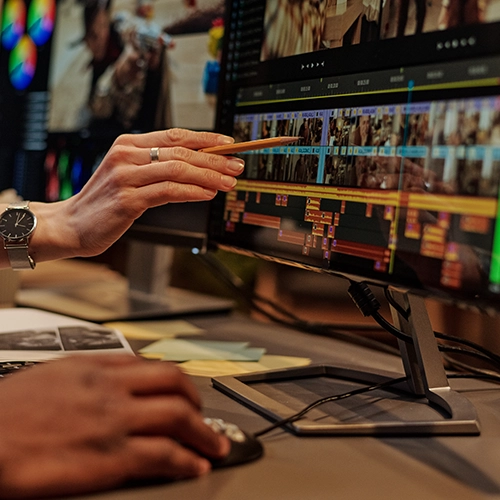
Live Editing Lab Access
10:00 AM – 8:00 PM Daily
Our Film Editing Course is a simulated studio experience designed to take you from a complete beginner to a high-earning professional film editor at top production houses.
01
Program Duration
A professional 09-Month intensive track. Master Premiere Pro, DaVinci Resolve, Final Cut Pro, Color Grading, Sound Design & AI Film Editing in a studio-grade environment.
- 500+ Hours of Training
- Industry Mentor Sessions
02
Candidate Eligibility
Open to 10th, 12th Pass, Graduates & Working Professionals. We prioritize your creative thinking & storytelling ability; no prior editing experience is required.
- No Entrance Exam
- Basic Computer Literacy
03
Learning Architecture
Flexible Project-First Architecture. Choose between In-Person Classroom training, Live Virtual Classrooms, or a Hybrid mode that suits your schedule.
- Lifetime Portal Access
- Recorded Sessions
POST-PRODUCTION INFRASTRUCTURE
Studio-Style
Film Editing Hub
At VFX India, you don't just learn — you edit real cinema in an environment that mirrors a professional post-production studio.
Personalized Focus
Batch sizes limited to ensure 1-on-1 attention for every student.
Elite Mentorship
Instructors from real cinema production houses and post-production studios.
Continuous Support
24/7 student support with dedicated mentoring and career advice.
Current Industry Standards
Updated syllabus aligned with 2026 cinema & OTT industry trends.
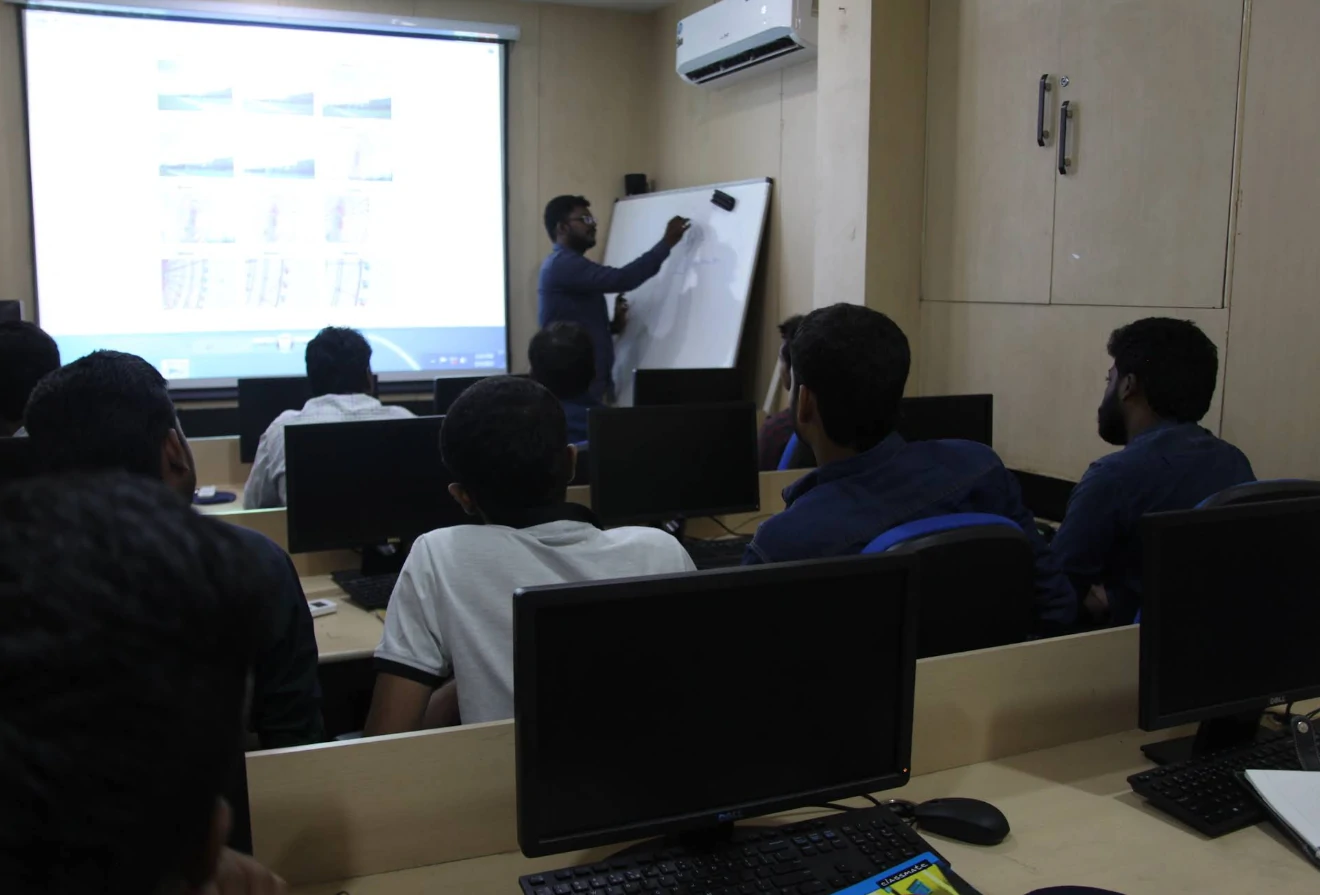
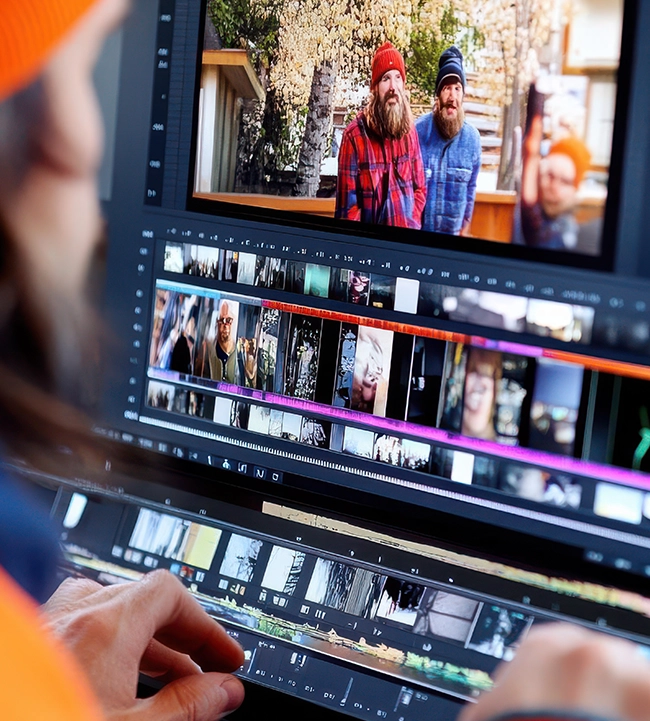

THE EDITING PIPELINE
Learn Film Editing the way it's done in the real world. Each project mirrors Actual Cinema Production Workflow — from raw footage import and assembly to color grading, sound design, and final delivery.
End-to-End Post-Production Mastery
Through regular live reviews, peer feedback, and expert mentorship.
Course Highlights
What Makes Our Film Editing Course Stand Out?
Industry-grade training designed by cinema professionals to make you production-ready from Day 1.
Multi-NLE Training
Master Premiere Pro, DaVinci Resolve, Final Cut Pro & Avid Media Composer — all in one course. Become platform-agnostic.
Advanced Color Grading
Learn cinematic color grading with DaVinci Resolve Color, Lumetri Color & LUT creation. Master the look of Hollywood blockbusters.
Professional Sound Design
Master audio editing, Foley recording, ADR sessions, dialogue editing & surround sound mixing using Adobe Audition.
AI-Powered Editing Tools
Learn to leverage Runway AI, Adobe Sensei, OpenAI Whisper & CapCut AI for automated scene detection, subtitle generation & smart editing.
Real Cinema Projects
Edit 15+ real-world projects: short films, documentaries, music videos, commercials & OTT content — all portfolio-ready.
Global Certification
Earn CBE Canada Certified professional credentials — recognized worldwide by production houses, OTT platforms & advertising agencies.
Course Curriculum
Film Editing Syllabus Roadmap
A structured professional journey from cinematic foundations to industry delivery, covering every aspect of modern post-production across 15 modules.
M01
Foundations & Grammar
Cinematic Storytelling Fundamentals
- The Psychology of the Cut: Why & When to Edit
- Understanding Shot Sizes & Lens Perspective
- Mastering Continuity: Action, Look, and Thought
- The 180-Degree Rule and Creative Breaking Points
- Emotional Pacing: Controlling the Audience Heartbeat
Theory
ShotDeck
M02
NLE Mastery: DaVinci Resolve
Professional Pipeline Management
- Database Setup & Optimized Project Architecture
- High-Resolution Proxy Workflows for 4K/6K/8K
- Advanced Metadata Tagging & Bin Organization
- Multi-cam Syncing for Narrative & Interview Setups
- Introduction to the Color Page & Edit Page Link
DaVinci Resolve
M03
Fast Narrative Editing
Speed-Based Storytelling
- Magnetic Timeline: Thinking in Story Blocks
- Performance Selection: Picking the Winning Take
- Role-Based Organization for Audio/Video Elements
- Speed Ramping & Fluid Time-Remapping
- The "Skimming" Workflow for Rapid Content Review
Final Cut Pro
M04
Studio Feature Standards
The Industry Standard Workflow
- Avid Media Management & Relinking Logic
- Collaborative Editing in Shared Storage (NEXIS)
- ScriptSync & PhraseFind for Dialogue-Heavy Scenes
- Trimming Mastery: Asymmetric & Slip/Slide Tools
- Preparing EDLs & AAFs for Sound/Color Turnover
Avid Media Composer
M05
Film Editing Support
Image Manipulation for Editors
- Content-Aware Fill for Distracting Object Removal
- Advanced Masking for Selective Color Focus
- Creating Custom Film Poster Frames from Footage
- Texture Overlay: Adding Digital Grit & Dust
- Dynamic Alpha Channel Creation for VFX Prep
Photoshop
M06
Motion Design
Titles & VFX Integration
- Cinematic Opening Title Design & Animation
- End Credit Scroll: Professional Speed & Clarity
- Keyframing Motion: Dynamic Scale & Position
- "Invisible" VFX: Cleanup & Simple Compositing
- Dynamic Link: Timeline-to-VFX Workflow
After Effects
M07
Planar Tracking
Object & Surface Tracking
- Corner Pinning: Perfect Screen Replacements
- Tracking Organic Surfaces (Faces/Clothing)
- Removing Complex Markers from Film Plates
- Exporting Track Data to Resolve/After Effects
- Stabilizing Shaky "Hero" Shots Without Zoom Artifacts
Mocha Pro
M08
Roto & Paint Cleanup
Precision Cleanup
- Magnetic & Intelligent Rotoscoping
- Object Removal: Deleting Rigs and Wires
- Painting Out Skin Blemishes & Mic-Peeks
- Edge Refinement for Hair and Complex Borders
- Matte Generation for Complex Color Grading
Silhouette
M09
Film Stylization
Mood & Atmosphere
- Adding Cinematic Halation & Light Blooms
- Custom Anamorphic Flare Overlays
- Film Damage: Scratches, Hair, and Jitter
- Chromatic Aberration for a Vintage Lens Look
- Texture Blending: 16mm vs 35mm Grain Profiles
Red Giant
M10
Noise & Grain Management
Image Quality Restoration
- Temporal vs Spatial Denoising Techniques
- Cleaning Low-Light Digital Noise (ISO Artifacts)
- Preserving Fine Detail During Heavy Cleanup
- Grain Management: Matching Multiple Cameras
- Mastering Sharpening Without Digital "Halos"
Neat Video
M11
Color Look Development
Advanced Stock Emulation
- KODAK & FUJI Film Stock Profiles
- Print Film LUTs vs PowerGrade Workflows
- Subtractive Color Modeling for the "Film Look"
- Developing a Signature "Show-LUT" for Clients
- HDR vs SDR Grading Considerations
Dehancer
M12
Audio Post-Production
Sound Design for Editors
- Dialogue EQ & Dynamic Compression
- Building a 3D Sonic Space: Foley & Ambience
- Music Editing: Re-Timing Tracks to the Edit
- Mixing Levels: Dialogue vs SFX vs Score
- Loudness Standards for TV & Streaming Platforms
Pro Tools
M13
AI Workflows
The Future of Editing
- Text-Based Editing: Trimming Through Transcripts
- AI Scene Recognition & Automated B-Roll Matching
- Smart Audio Cleanup: Removing Background Noise
- Generative Fill for Extending Backgrounds
- AI-Assisted Color Matching Across Clips
Descript
Runway
M14
Restoration & Upscaling
AI Upscaling & Rescue
- Upscaling 1080p to 4K Without Loss of Quality
- Rescuing Out-of-Focus "Must-Have" Shots
- Frame Interpolation for Smooth Slow-Motion
- Restoring Archival/Historical Footage
- Cleaning Heavy Compression Artifacts
Topaz AI
M15
Mastering & Delivery
Final Industry Delivery
- Creating Digital Cinema Packages (DCP)
- Exporting for Netflix, YouTube & Instagram Specs
- Understanding Bitrates, Codecs (H.265/ProRes)
- Building a Showreel That Gets You Hired
- Client Review Workflows: Frame.io Integration
Frame.io
DCP
Your Journey
Your Learning Path
A structured 6-month transformation from beginner to industry-ready film editor, with hands-on projects at every stage.
Phase 1
Foundation & Core Concepts
Weeks 1-4
Master visual storytelling, editing grammar, and develop your cinematic eye.
Shot Types
Continuity
Pacing
Phase 2
Technical Software Mastery
Weeks 5-10
Deep dive into DaVinci Resolve, Final Cut Pro, and Avid Media Composer.
DaVinci
Final Cut
Avid
Phase 3
VFX & Motion Graphics
Weeks 11-16
Essential VFX integration, tracking, rotoscoping, and title design.
After Effects
Mocha
Titles
Phase 4
Color Grading & Audio
Weeks 17-20
Develop your color style, film emulation, and audio post-production.
Color
LUTs
Pro Tools
Phase 5
AI Tools & Portfolio
Weeks 21-26
AI workflows, showreel creation, and industry delivery standards.
AI Tools
Showreel
DCP
Career Outcome
Ready for the Industry
Upon completion, you'll be equipped with the skills, portfolio, and confidence to pursue exciting career opportunities in film, television, advertising, and digital media production.
Film Editor
TV Post-Production
Commercial Editor
Content Creator
Colorist
VFX Artist
Student Portfolio
Our Student's Film Editing Works
Watch real projects created by our students during the course. From short films to commercials, see the professional-quality work that gets them hired.
500+
Projects Completed
150+
Students Trained
95%
Placement Rate
Project 01
Short Film
Professional Narrative Edit
A compelling short film showcasing advanced storytelling, emotional pacing, and seamless transitions.
Narrative
Color Grade
Sound Design
RK
Rahul Kumar
Batch 2024 • Chennai
12.5K
Project 02
Action
Action & Fight Sequences
High-octane action editing with precise timing, impactful cuts, and dynamic sound effects.
Fast Cuts
VFX
SFX
PS
Priya Sharma
Batch 2024 • Chennai
8.2K
Project 03
Commercial
Commercial Ad Showcase
Brand storytelling with professional color grading, motion graphics, and persuasive editing.
Branding
Motion Graphics
Color
AV
Arun Vijay
Batch 2023 • Chennai
15.8K
Project 04
Documentary
Documentary Filmmaking
Non-linear storytelling with interview cuts, B-roll integration, and emotional narrative arc.
Interview
B-Roll
Narration
DM
Deepika M
Batch 2024 • Chennai
6.4K
Project 05
Music Video
Music Video Dynamics
Beat-synced editing with creative transitions, visual rhythm, and stylized color grading.
Beat Sync
Transitions
Style
KR
Karthik R
Batch 2023 • Chennai
22.1K
Project 06
Showreel
Advanced Post-Production
Industry-standard workflow showcase demonstrating mastery across multiple editing styles.
DaVinci
After Effects
Pro Tools
SN
Sneha Nair
Batch 2024 • Chennai
9.7K
Ready to create work like this? Join our next batch!
Explore Our Editing Courses Hands-On Projects
What You'll Create In This Film Editing Course
Build a professional portfolio with 24 industry-standard projects, from short films to commercial ads, music videos to documentary edits.
24
Real Projects
100+
Hours Practice
1
Pro Showreel
 01
Narrative
01
Narrative
Short Film Editing
Master narrative storytelling, dialogue syncing, emotional pacing, and scene transitions for cinematic shorts.
Pacing
Continuity
Dialogue Sync
 02
Creative
02
Creative
Music Video Editing
Learn rhythmic cutting, beat-synced transitions, and stylized visual effects to enhance musical energy.
Beat Sync
VFX
Color Grade
 03
Commercial
03
Commercial
Commercial Ad Film
High-impact 30-second editing for brands with attention-grabbing hooks and persuasive storytelling.
Fast Cuts
Branding
CTA
 04
Commercial
04
Commercial
Trailer & Teasers
Build suspense, create hype, and master high-octane editing with dramatic sound design.
Suspense
Sound Design
Hooks
 05
Narrative
05
Narrative
Documentary Practice
Synthesize interviews, archival footage, and B-roll into compelling factual narratives.
Interview
B-Roll
Narration
 06
Technical
06
Technical
Multi-Cam Interview
Handle multiple camera angles seamlessly for talk shows, podcasts, and interviews.
Multi-Cam
Audio Sync
Switching
 07
Creative
07
Creative
Wedding Cinematic Highlight
Create emotional slow-motion montages with beautiful color grading and music sync.
Slow Motion
Emotion
Music Edit
 08
Narrative
08
Narrative
Action Scene Cutting
Focus on continuity, impact, and rhythm in high-speed fight or chase sequences.
Fast Cuts
Impact
SFX
 09
Commercial
09
Commercial
Professional YouTube Vlog
Optimize content for engagement with graphics, sound effects, and dynamic jump cuts.
Jump Cuts
Graphics
Engagement
 10
Technical
10
Technical
Color Grading Masterclass
Correct and grade footage with LUTs, curves, and color wheels for cinematic looks.
LUTs
Color Wheels
Mood
 11
Technical
11
Technical
Advanced Sound Design
Layer foley, ambience, and score to create an immersive cinematic audio experience.
Foley
Mixing
Score
 12
Commercial
12
Commercial
Corporate Brand Story
Polished professional editing for companies showcasing mission, values, and culture.
Professional
Clean
Brand
Graduate With a Professional Portfolio
By course completion, you'll have 24 polished projects across multiple genres and formats, plus a professional showreel ready to impress employers, clients, and production houses in the film industry.
Full Course Access
₹1,22,000
Comprehensive 9-month film editing program with industry-standard tools and placement support.
08 MONTHS EMI AVAILABLE
Lifetime Course Access
Industry Certification
100% Placement Support
Professional Showreel
Curriculum Architecture
Professional Film Editing Course
Training Model
Expert Led & One-on-One Personalized Learning
Portfolio Strategy
24 Real World Projects for Film & OTT
Course Duration
9 Months Intensive Program (180+ Hours)
Batch Size
Limited to 10 Students per Batch
Syllabus Scope & Tools
Master industry-standard software including DaVinci Resolve, Final Cut Pro, Avid Media Composer, After Effects, Mocha Pro, and Pro Tools. Specialized training in Advanced Color Grading, Sound Design, VFX Integration, Motion Graphics, and AI-powered workflows.
Weekday Batches
Mon, Wed, Fri | 10 AM - 7 PM
Weekend Batches
Sat, Sun | 10 AM - 1 PM
Enroll Now - Limited Seats
Have questions? Call us for a free consultation
REC
PRO-LEVEL MASTERTRACK
Film Editing
Mastery Course
For professionals aiming to master Advanced Film Editing Skills. Includes everything in the Advanced track, plus portfolio reviews, mentorship sessions, and real cinema project simulations for OTT & theatrical delivery.
#PremierePro
#DaVinciResolve
#FinalCutPro
#ColorGrading
#SoundDesign
#AIEditing
9
MONTHS
Intensive Cinema Editing Track
Professional-level film editing & post-production training.
Editor Toolkit
Premiere Pro
DaVinci
Final Cut Pro
After Effects
Audition
Avid MC
Runway AI
Whisper AI
CapCut AI
Register Now
CBE Certified
EMI Available
Placement Support
Global Opportunities
Endless Career Paths in Editing
Join the elite ranks of visual storytellers in industries ranging from feature films to digital content with our Professional Film Editing Course.
Starting: ₹4L - ₹8L PA
Feature Film Editor
The primary architect of a film's story. Work with directors to assemble shots into a cohesive narrative for big-screen releases.
Starting: ₹5L - ₹10L PA
Colorist
Shape the visual mood and aesthetic of a film. Master DaVinci Resolve to create consistent, high-end cinematic looks.
Starting: ₹3L - ₹6L PA
Ad Film Editor
Specialise in fast-paced, high-impact storytelling for global brands and commercial agencies.
Starting: ₹4L - ₹12L PA
Digital Content Creator
Edit high-end content for YouTube, Netflix, and OTT platforms where creative editing is highly valued.
Starting: ₹3L - ₹5L PA
Sound Editor
Design immersive auditory experiences, ensuring dialogue, sound effects, and music blend perfectly.
Starting: ₹3.5L - ₹7L PA
VFX Editor
The bridge between the edit suite and the VFX house, managing complex layered shots and visual integration.
Ready to start your journey?
Enroll in the Film Editing Training In Chennai today and get placed in top studios.
Professional Credential
Global Film Editing Certification
Earn a recognized industry certification that validates your technical skills and narrative mastery in the world of professional cinema.
Validate Your Creative Talent
Our certification is awarded upon successful completion of the Best Film Editing Course curriculum and final project submission. It serves as a proof of your proficiency in industry-standard tools and workflows.
Industry-Recognized Certificate
Portfolio Validation
Editor Profile Listing
Lifetime Alumni Access
Accredited By
CBE Canada
ISO 2006
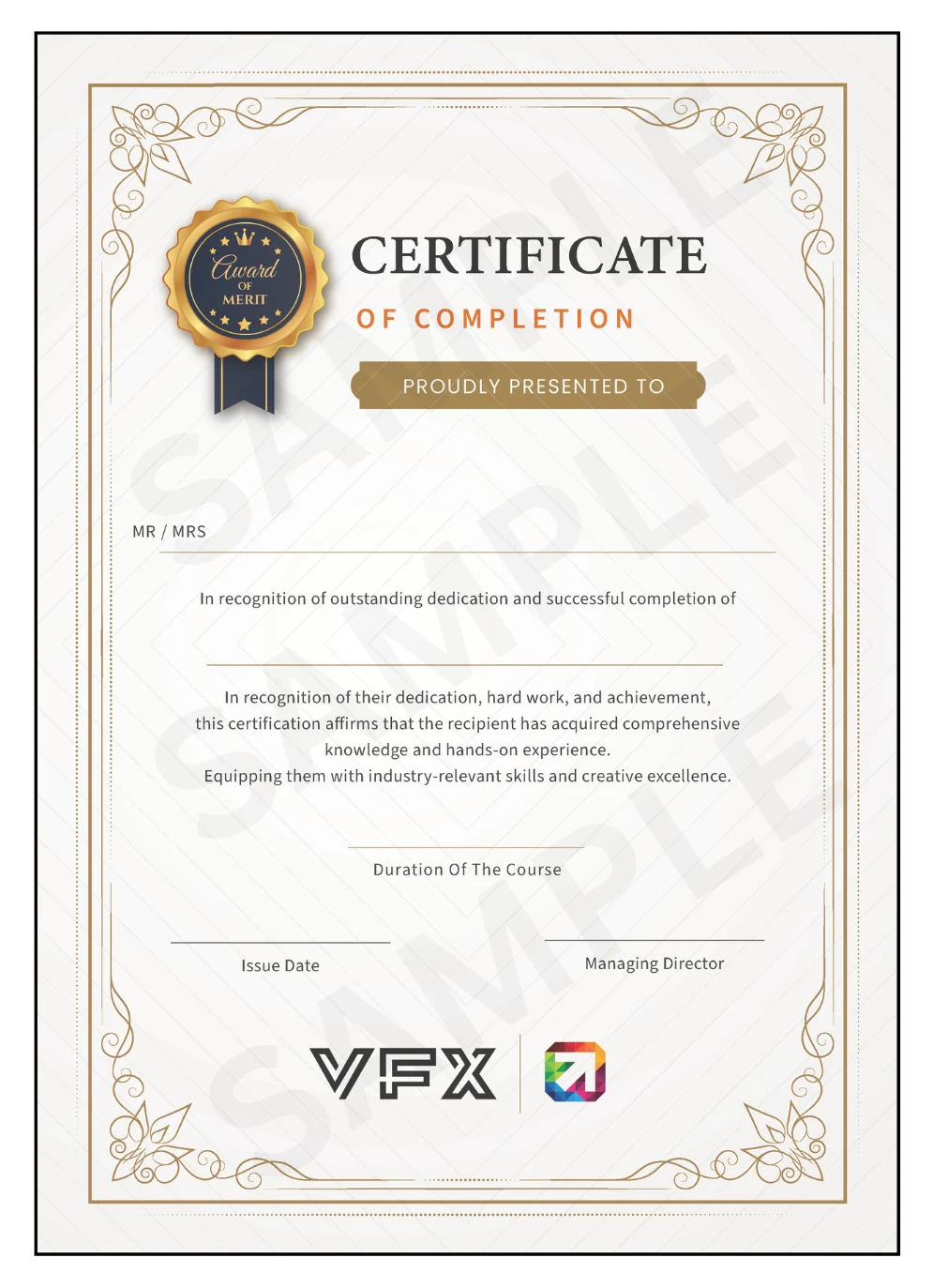
Placement Hub
Secure Your Future with Film Industry Leaders
Become industry-ready with our Film Editing courses . We bridge the gap between talented students and top-tier production houses, ensuring your skills meet real-world demands.
0%
Placement Rate
0+
Hiring Partners
0+
Students Placed
Studio Internships
Direct Job Referrals
Showreel Assistance
Interview Preparation
Industry Networking
Certified Portfolio
Have questions? Call us now
Industry Recognition
Trusted by 50+ Production Houses
Our Recruiting Partners
















Career Launchpad
100% Placement Support
We don't just teach techniques; we build careers. Our dedicated placement cell works tirelessly to connect you with top production houses.
150+
Hiring Partners
95%
Placement Rate
₹8L+
Highest Package
500+
Alumni Placed
Showreel Grooming
Get expert feedback on your portfolio. We help you curate your best work into a professional showreel that grabs recruiter attention.
Mock Interviews
Technical and creative mock interview sessions to build your confidence and refine your storytelling pitch to directors.
Industry Referrals
Direct entry into our vast network of Film Editing Training In Chennai partners and leading production studios.
Editor Success Stories
What Our Graduates Say
Join the community of successful editors who launched their cinema careers through our Best Film Editing Course.
SK
Siva Kumar
"The most professional Film Editing Training In Chennai. I learned the soul of editing beyond just software. Now working in Kollywood!"
Cinema Editor
Placed
RM
Ramya M
"Mastering DaVinci Resolve and Premiere Pro at VFX India was a game-changer. The hands-on project work is exactly what the industry needs."
Colorist
Top Student
AR
Arjun R
"The focus on storytelling and rhythm is what makes this the Best Film Editing Course. Highly recommend for aspiring editors."
Ad Film Editor
Hired
SK
Siva Kumar
"The most professional Film Editing Training In Chennai. I learned the soul of editing beyond just software. Now working in Kollywood!"
Cinema Editor
Placed
RM
Ramya M
"Mastering DaVinci Resolve and Premiere Pro at VFX India was a game-changer. The hands-on project work is exactly what the industry needs."
Colorist
Top Student
AR
Arjun R
"The focus on storytelling and rhythm is what makes this the Best Film Editing Course. Highly recommend for aspiring editors."
Ad Film Editor
Hired
1200+
Editors Trained
4.9/5
Average Rating
98%
Placement Rate
Star Performers of Our Graduation Batch
Shamal Chacko
Lead Film Editor & Filmmaker
4+
Feature Films
100+
Projects
5+
Years Experience
Transforming the visual pace of modern cinema through a seamless blend of masterful storytelling and technical precision. By pioneering industry-first workflows, Shamal transforms complex narratives into fluid, cinematic experiences that resonate with global audiences.
"I recently completed the Film Editing Course here, and it has been a game-changer for my career. The curriculum is incredibly thorough, covering everything from the fundamentals of Premiere Pro and DaVinci Resolve to advanced VFX workflows in After Effects and Nuke.
What sets this place apart is the focus on industry standards. We didn't just learn where the buttons are; we learned about color grading, rotoscoping, and matchmoving in the context of real-world production. The mentors are clearly experienced professionals who offer constructive, high-level feedback on every project.
I'm walking away with a professional-grade showreel and the confidence to take on freelance or studio work. Highly recommend to anyone serious about post-production!"
SC
Shamal Chacko
Film Editor & Filmmaker

FILMOGRAPHY
PEEKABOO
Film Maker & Lead Editor
2024OTTU / RENDAGAM
Lead Film Editor
2023MY LUCKY NUMBER IS BLACK
Creative Post Supervisor
2023LOVEFULLY YOURS VEDA
Feature Narrative Edit
2024
Next Intake
Upcoming Batches
Our batches are kept small (max 10 students) to ensure personalized mentorship and hands-on learning. Secure your seat early for the upcoming intake.
Personalized Mentorship
Recording Access
1-on-1 Focus
Can't find a suitable batch? Request a custom schedule
Knowledge Base
Frequently Asked Questions
Everything you need to know about our Film Editing Course. Can't find the answer? Feel free to contact us.
Categories
01
Is This A Film Editing Course Or A Video Editing Course?
This is a dedicated Film Editing Course, focused entirely on cinematic storytelling, narrative structure, continuity, pacing, and professional film post-production workflows.
It does not cover social media, YouTube, reels, or promotional video editing. Video Editing for digital platforms is offered as a separate specialized course.
Film Editing
Cinematic
Storytelling
02
What Is The Difference Between Film Editing And Video Editing?
Film Editing focuses on storytelling, emotion, rhythm, and narrative flow used in feature films, short films, and OTT originals.
Video Editing is generally used for marketing, social media, corporate videos, and online content.
This course trains students in film grammar, continuity editing, scene construction, and cinematic pacing, which are essential for cinema and OTT.
Film Grammar
Continuity
OTT
03
Which Software Will I Learn In This Course?
Students are trained using industry-standard film post-production tools:
- Editing & Color: DaVinci Resolve, Avid Media Composer, Adobe Premiere Pro, Final Cut Pro
- Audio & Sound: Logic Pro X, Pro Tools
- VFX & Motion: After Effects, Mocha Pro, Silhouette FX
- Plugins: FilmConvert, Neat Video, Red Giant Suite
DaVinci Resolve
After Effects
Pro Tools
04
Can Beginners Join This Film Editing Course?
Yes, absolutely! This Film Editing Course is beginner-friendly.
Training starts from editing fundamentals, film grammar, shot understanding, and storytelling principles, then gradually progresses to advanced film editing techniques used in cinema and OTT projects.
No prior editing experience is required.
Beginner Friendly
No Experience Needed
05
What Kind Of Projects Will I Work On?
Students work on 24 real cinematic projects following industry workflows:
- Narrative short films
- Scene-based film editing exercises
- Film trailers and teasers
- Dialogue-driven storytelling sequences
- Music video editing
- Documentary practice
- Final professional demo reel
24 Projects
Real Workflows
Demo Reel
06
Does The Course Focus On Storytelling Or Only Software?
The course gives strong priority to storytelling. Software is treated as a tool, while the core training focuses on:
- Narrative structure & scene construction
- Emotional pacing & rhythm
- Continuity & visual flow
- Scene transitions & montage
- Editor's creative decision-making
Storytelling First
Creative Focus
07
Do You Provide Placement Support?
Yes, 100% placement support! We offer dedicated placement and career assistance, including:
- Professional demo reel guidance
- Portfolio structuring for film roles
- Mock interviews & interview preparation
- Resume building for film industry
- Direct access to 150+ hiring partners
- Studio internship opportunities
100% Support
150+ Partners
Internships
08
What Jobs Can I Apply For After This Course?
Graduates can apply for specialized industry roles:
- Film Editor / Assistant Film Editor
- OTT Content Editor
- Post-Production Executive
- Trailer & Promo Editor
- Colorist / Color Grading Artist
- VFX Editor
- Freelance Film Editor
Film Editor
Colorist
Freelance
09
What Is The Course Duration & Fee?
Duration: 9 months intensive program (180+ hours of training)
Course Fee: ₹1,22,000 (EMI options available for 10 months)
Batch Size: Limited to 10 students for personalized attention
Both weekday and weekend batches are available.
9 Months
EMI Available
Small Batches
10
Will I Get A Professional Demo Reel?
Yes! Every student works towards building a professional film editing demo reel, showcasing:
- Narrative editing skills
- Scene construction & pacing
- Color grading work
- Audio design samples
- VFX integration examples
Showreel
Portfolio
11
Is This Course Focused On OTT Platforms?
Yes. The training includes modern OTT storytelling styles, including:
- Narrative pacing for episodic content
- Web series editing techniques
- Netflix/Amazon Prime delivery specs
- Digital cinema workflows
Netflix
Amazon Prime
Web Series
12
Is Online Training Available?
Yes. The Film Editing Course is available in both classroom and online modes, with:
- Live interactive sessions
- Recorded session access
- Project reviews & feedback
- 1-on-1 mentor guidance
Online
Classroom
Live Sessions
13
Is This Course For Aspiring Filmmakers?
Absolutely! This course is ideal for:
- Aspiring filmmakers & directors
- Assistant directors
- Cinematographers
- Content creators moving to cinema
Filmmakers
Directors
14
Will I Learn Film Grammar & Continuity?
Yes, it's a core foundation! You will learn:
- Continuity rules & the 180-degree rule
- Match cuts & action continuity
- Eye-line matching
- Visual rhythm & pacing psychology
- Scene transitions & montage theory
Film Grammar
Continuity
180° Rule
15
Will This Help Me Enter The Film Industry?
Yes, that's our primary goal! The course is designed as a career-transition program, focusing on:
- Industry-standard workflows
- Studio expectations & practices
- Real project exposure
- Professional networking
- 100% placement support
Career Transition
Industry Ready
Still have questions?
Can't find the answer you're looking for? Reach out to our team.
Admissions Open for 2026 Batch
Start Your
Directorial Cut.
Don't just watch cinema—create it. Join the best film editing course in Chennai and master the tools of the trade. From YouTube to Big Screen, your journey starts here.
Certified
Professional
Professional
100% Placement
Assistance
Assistance
Get a Free Demo
Register now to attend our upcoming workshop.
WPForms Shortcode Area
Replace this placeholder with your WPForms shortcode:


